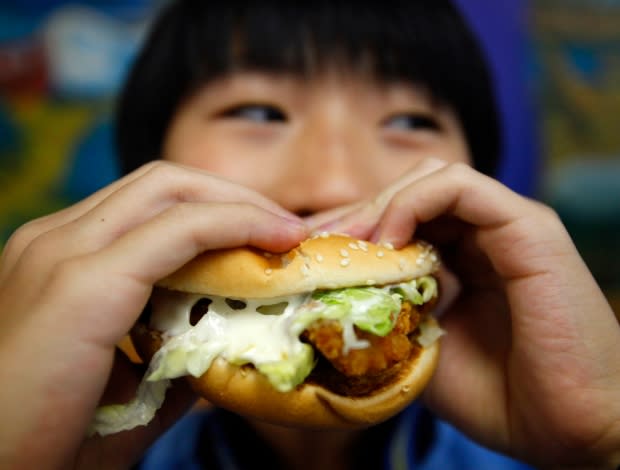Sask. senator opposes law banning junk food marketing to kids, calling it the 'bread is bad' bill
A Saskatchewan senator is holding steady in her opposition to a bill that pediatricians want passed to help fight childhood obesity.
The Child Health Protection Act, or Bill S 228, would limit advertising to kids under the age of 13 for foods high in salt, sugar and saturated fat. With the clock ticking on the current government's term, and some senators opposing the bill, it may be destined for death on the order paper.
"Everybody agrees obesity is a problem," said Independent Sen. Pamela Wallin, one of the critics of the bill. "We don't need to target kids and sell them more pop and chocolate bars. That's a no-brainer."
Wallin said her problem with the bill is that along the way, the term "unhealthy foods" was added. Anything with more than five per cent fat, salt, sugar could be deemed unhealthy and lead to limiting advertising on foods like breads or dairy, she argued.

Wallin's described it as the "bread is bad" bill and said it could be potentially damaging for Sask. farmers and dairy producers.
"When you start saying to parents, 'You can't send a sandwich with your kids to school, because bread is bad,' that's making life difficult for everybody," she said, arguing an easy solution would be to remove the words "unhealthy foods" from the bill.
"There's a better way to do this."
Listen to CBC Saskatchewan's Morning Edition interview with Pamela Wallin:
Lobby has been 'fear-mongering,' says doctor
Dr. Andrew Lynk is the chair of pediatrics at Dalhousie University and a backer of the bill. He said he and 4,000 pediatricians across the country are pleading with senators to pass the bill.
"We told them, 'Look, if you pass this legislation, you'll do more for this problem than all 4,000 of us can do in our entire professional lifetime of practice," he said. "We're counting on you."
Lynk said restricting advertising for foods high in salt, sugar and saturated fats has been shown to help reduce the demand for these foods.
He said big food producers are lobbying hard, "and probably fear-mongering," about the impact of the bill.
Proponents of the bill argue that in Quebec and in other countries where similar regulations on marketing to kids have been passed, there's been no meaningful impact on industry or trade.
According to the Stop Marketing to Kids Coalition, Health Canada has been clear it won't brand foods as unhealthy under the bill. It also argues that bread isn't an issue, as less than one per cent of bread is marketed to children.
Lynk said food processors could potentially be impacted by the bill, but could adapt by improving the nutritional content of food.
"Unfortunately, I think [the bill's] going to die and we're going to have to restart this whole process after the federal election."

